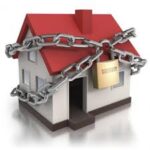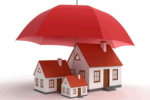Renovations With a Strong Return on Investment

Renovations that make homeowners and residents of a home happy are always worth the investment. Though it’s certainly true that projects that create more functional, usable space and add comfort and convenience are worth the price, such renovations are even more beneficial if they provide a good return on homeowners’ financial investment ( ROI).
Returns on investment (ROI) are often cashed in when homeowners put their homes up for sale, and each year Remodeling magazine releases its “Cost vs. Value Report,” which considers a wealth of data across the United States to determine which renovations return the highest percentage of homeowners’ financial investment.
According to the “2024 Cost vs. Value Report,” the following are projects that provide a strong return on investment (ROI):
Enhance curb appeal:First impressions matter, so improving your home’s curb appeal can significantly impact its value. Simple upgrades such as landscaping, exterior painting, and installing a new entry door can make a substantial difference. According to industry experts, enhancing curb appeal can yield an ROI of up to 200%.
Garage door replacement: The average job cost for this project is slightly more than $4,500 but the project is valued at $8,751, providing an especially high 194% ROI.
Steel door replacement: Remodeling magazine notes that a steel entry door replacement is worth double what it was worth in 2023. This project offers a 188% ROI on an average investment of $2,355.
Manufactured stone veneer: A manufactured stone veneer is a man-made product that appears as if it’s natural stone. Many homeowners prefer manufactured stone veneer to natural stone because of the price, as the former is less expensive and easier to install, which means lower labor costs as well. The comparatively low cost of manufactured stone veneer is perhaps one reason why it averages a roughly 153% ROI on an average cost of just more than $11,000.
Minor kitchen remodel: According to the “2024 U.S. Houzz & Home Study” from Houzz Research, kitchens were the most popular rooms to renovate in 2023. There’s no denying the appeal of a newly renovated kitchen, and homeowners considering such a project may be happy to learn that a minor kitchen remodel that costs an average of around $27,000 provides a 96% ROI.
Renovate bathrooms:Bathrooms are another high-impact area for home improvements. Remodeling a bathroom can provide a return on investment of around 81% for an addition and approximately 71% for a complete renovation.
Simple upgrades to bathroom fixtures can also go a long way in improving your home’s value. Consider replacing outdated faucets, showerheads, and toilets with modern, water-efficient options. This improvement offers a high return on investment and enhances your bathroom’s overall look and functionality.
Roof Replacement: A well-maintained roof is essential for any home and replacing an old or damaged roof can significantly increase its value. Additionally, a new roof provides peace of mind for potential buyers. Roof replacements offer a high return on investment, with homeowners recouping the entire cost.
Install Smart home and Home Security Technology: Smart home technology is becoming increasingly popular among homeowners. Integrating features such as smart thermostats, lighting systems, and security cameras can enhance the appeal and value of your home. Smart home features offer a return on investment of up to 10%.
Investing in smart home security measures will enhance your peace of mind and increase your home’s value. Upgrades such as motion sensor lighting and sturdy locks can make your home more attractive to potential buyers. Smart thermostats are becoming increasingly popular, as they offer several benefits, such as energy savings and remote control. Installing a smart thermostat can increase the value of your home by up to 3%.
When considering home improvements in Florida, focusing on projects that offer the best return on investment is crucial. Enhancing curb appeal, upgrading key areas such as the kitchen and bathroom, and investing in energy-efficient features are all smart choices. Strategic improvements can increase your home’s value and attract potential buyers in the competitive Florida real estate market. Remember to consult with local professionals to ensure that you choose improvements that align with the preferences and needs of Florida homebuyers.













 Kim N. Bregman
Kim N. Bregman